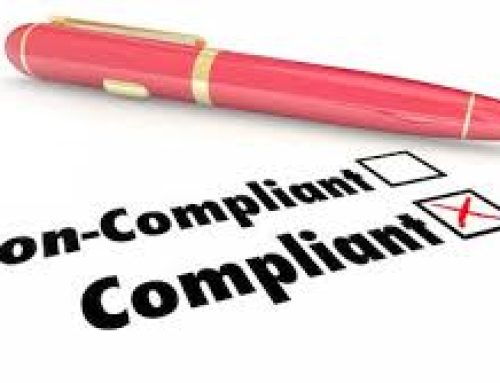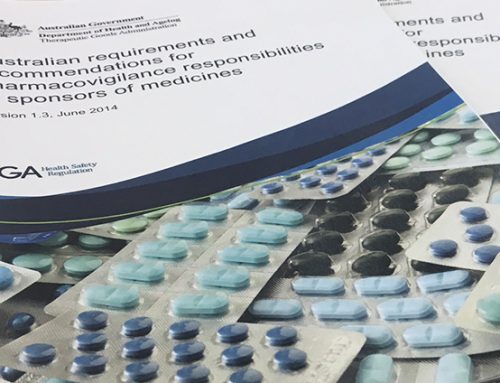Beat it – Managing Post Market Risk
Now that you have listed your new product on the ARTG, don’t put your feet up yet as the Therapeutic Goods Administration’s (TGA) post market surveillance team might surprise you with a Section 31 Request for Information, post market review at any time. Here is a checklist to help you understand your responsibilities as the sponsor (that’s TGA’s preferred term) of your product to remain compliant.
At the time of product listing on ARTG, you would have ticked all the following boxes:
- You are an Australian entity and registered with the TGA.
- All ingredients comply with Permissible Ingredients Determination.
- You hold evidence to support your therapeutic indications (aka ‘claims’) as per the TGA’s Evidence Guidelines.
- GMP agreements have been signed with all manufacturers involved with the manufacturing and packaging of the products.
Ready to launch your product? Have you checked the following?
- Product labels comply with TGO 92.
- Advertising (including but not limited to print, websites and social media) complies with Therapeutic Goods Advertising Code (TGAC).
- Stability testing has been actioned for each product or grouped when justified.
- Pharmacovigilance program is in place and relevant staff have been trained on legal responsibilities for Pharmacovigilance reporting for adverse events and adverse reactions.
Staying compliant after your product launch.
TGA might call upon you for a post market review, most often by random selection, but sometimes may also conduct targeted reviews. In the event of a post market review or audit, failure to comply with the legislation can result in products being cancelled from the ARTG by the TGA and infringements upon the sponsor. It is therefore of paramount importance that sponsors understand the essential regulatory basics of listing and keeping a product on the ARTG when marketing a product.
- Ingredients: Sponsors must comply with the requirements and restrictions associated with the use of the ingredients as specified in the Permissible Ingredients Determination and the SUSMP (Poisons Standard). Ingredients for use in vulnerable populations (eg., children, pregnant women and the elderly) should be justified with safety data in the population.
- Indications: Sponsors must comply with the requirements associated with the use of the indications as specified in Therapeutic Goods (Permissible Indications) Determination; and must hold suitable evidence to support any indications and claims (incl. marketing claims) about the product in accordance with the TGA’s Evidence Guidelines. Evidence needs to be reviewed regularly for any changes to the weight of the evidence as new evidence emerges.
- Therapeutic Goods Orders (TGOs): The most crucial TGOs but often ignored by some sponsors include the Therapeutic Goods Order No. 92 – Standard for labels of non-prescription medicines (TGO 92), the Therapeutic Goods (Microbiological Standards for Medicines) Order (TGO 100) and the Therapeutic Goods (Standard for Tablets, Capsules and Pills) Order (TGO 101).
- Advertising: The overall presentation of the label, including any graphics, claims or indications need to comply with the Therapeutic Goods Advertising Code (TGAC). All marketing material and advertisements must comply with TGAC.
Examples of Post-market Surveillance by TGA
During a post-market review, TGA may check for compliance with applicable standards and legislative requirements for safety and quality, for example:
- Evidence to support indications. A sponsor was fined $12,600 for failing to hold suitable evidence to support claims.
- Compliance to the advertising code. A sponsor was fined $119,880 for alleged unlawful advertising of complementary medicines.
- Compliance to TGO 92 labelling order. A product containing Artemisia was recalled due to safety concern in pregnancy. Another product was also recalled due to missing dosage information in the ‘Directions for Use’ that may adversely affect the safe and effective use of the products.
- Compliance to pharmacovigilance (PV) responsibilities. A recent alleged breach related to the very first step of the pharmacovigilance requirements – failure to notify the TGA of the sponsors pharmacovigilance contact person – has resulted in a fine of over $13,000 for the sponsor.
- Advertising therapeutic goods not registered on the ARTG. A business was issued infringement notices for $302,400 for alleged advertising breaches.
- TGA is also closely monitoring products that sit on the food-medicine interface and can refer businesses to ACCC for further action should the product falls outside TGA jurisdiction.
Staying compliant with legislation does not need to be stressful or costly. The team at AWRS are always ready to help you with any concerns you might have. Contact us








